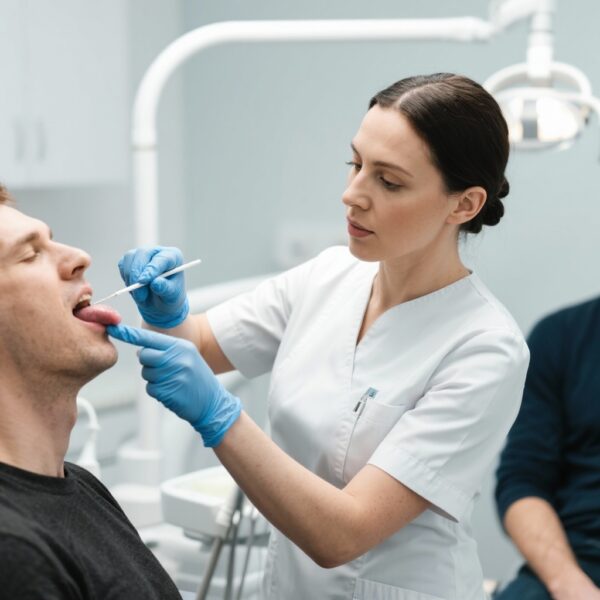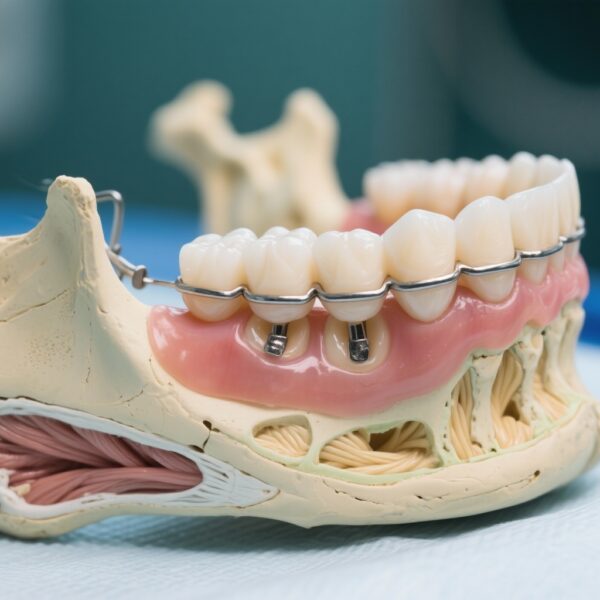Introduction
Oral rehabilitation is a critical component of improving the quality of life in patients with disabilities. Traditionally, removable dentures have been the default solution; however, implant-supported prostheses offer a more stable and functional alternative. Despite proven success in the general population, their application in patients with cognitive, mental health, or physical disabilities remains limited, primarily due to perceived risks and challenges associated with poor oral health, systemic conditions, and behavioral issues.
This comprehensive 14-year cohort study aimed to assess the outcomes, survival rates, and potential complications of implant-supported prostheses in patients with disabilities treated under general anesthesia (GA), providing valuable insights into the feasibility and long-term stability of such interventions in this vulnerable population.
Study Design and Methodology
This retrospective cohort study analyzed patient files from a French Special Care Dentistry unit. The study included 57 patients with various disabilities who underwent dental implant placement under GA between January 2007 and August 2021. Data collection comprised demographic details, surgical and prosthetic procedures, and follow-up outcomes.
The primary endpoints were implant survival, success, and failure rates, evaluated through clinical and radiological assessments based on the Health Scale for Dental Implants (HDSI). The study also documented technical and biological postoperative complications.
Major Results and Findings
A total of 298 dental implants were placed in this population, with a mean follow-up period sufficient to assess long-term outcomes. The key findings include:
– A technical postoperative complication rate of approximately 14%, including issues such as prosthetic screw loosening and ceramic chipping.
– A biological complication rate of around 13%, encompassing peri-implant mucosal inflammation and marginal bone loss.
– Thirty implants were classified as failures, reflecting a failure rate of roughly 10%.
– The estimated survival time in the population was approximately 144.7 months (~12 years), with a 86% cumulative survival rate at 157 months (~13 years).
These results demonstrate that, despite the complex clinical context, implant-supported prostheses can achieve high survival rates in patients with disabilities treated under GA. The data underline the importance of meticulous treatment planning and follow-up in this unique patient cohort.
Discussion and Expert Commentary
The findings affirm that implant rehabilitation under general anesthesia is a viable and durable solution for patients with disabilities, offering enhanced masticatory function, stability, and potentially improved nutritional status. The relatively low complication and failure rates underscore the feasibility of this approach.
However, limitations intrinsic to retrospective studies include potential selection bias and varied follow-up durations. Moreover, the heterogeneity of disabilities poses challenges in standardizing treatment protocols and predicting outcomes across different patient subgroups.
Recent guidelines and expert consensus advocate for the inclusion of patients with disabilities in implant therapy, emphasizing the necessity for interdisciplinary management and individualized care plans.
Conclusion and Future Directions
This long-term cohort study provides compelling evidence supporting the efficacy and stability of implant-supported prostheses in disabled patients treated under general anesthesia. These findings encourage broader clinical adoption and highlight the need for ongoing research into optimized surgical protocols, implant designs, and maintenance strategies tailored to this population.
Further prospective studies with standardized assessments are warranted to refine treatment algorithms and improve success rates, ensuring equitable oral healthcare for individuals with disabilities.
Funding and Registration
This research was conducted as part of routine clinical service; no specific funding was received. The study was approved by the relevant institutional review board.
References
– Bogner MS, Chambas V, Veyrune JL, Faulks D, Hennequin M. Oral implant rehabilitation under general anesthesia for patients with cognitive and physical disabilities: A 14-year cohort study. J Prosthet Dent. 2025 Oct;134(4):1156-1163. doi: 10.1016/j.prosdent.2024.01.012.
– Klineberg I, et al. Dental implants in disabled patients: a systematic review. J Dent Res. 2019;98(7):795-804.
– Slade GD, et al. Consensus statement on the management of implant-supported restorations in persons with disabilities: a systematic review and expert panel statement. J Prosthet Dent. 2021;125(5):744-751.



